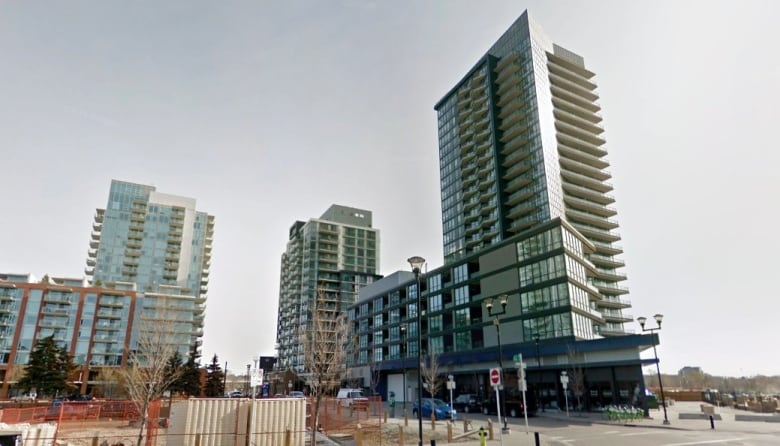The days of Alberta bleeding residents to other provinces are gone, at least for now. In the second quarter alone, the province saw a net gain of about 10,000 people thanks to moves from other parts of the country, especially from Ontario.
But people aren’t just moving themselves and their families to Alberta — a high number are moving their money.
In recent years, Calgary has seen a spike in out-of-province homebuyers scooping up investment properties they can rent out, with the primary motivator being comparatively cheap real estate.
“Prices in Toronto and those other cities are completely out of reach, not just for end users but for investors as well,” said Kyle Dovigi, a Toronto-based real estate broker who markets himself as the “Condo Millionaires” and who deals primarily in investment properties.
“So people look outside of their markets [and] Calgary is a very, very appealing market.”
And depending on whether you’re an investor, a renter or a buyer, the phenomenon may mean different things for your bottom line.
On the one hand, out-of-province real estate speculation has the potential to drive up prices for would-be homebuyers who actually live in Calgary.
On the other, the trend could be viewed as a vote of confidence in the Alberta economy — and a source of much-needed rental properties in an increasingly tight market.
What’s driving it
Ontario investors are scooping up rental properties in Calgary, attracted by the lower prices and positive economic outlook. But the trend is causing concern that the increased demand will drive up prices and put pressure on local home buyers.
The influx of out-of-province investment began just before the pandemic, right as the Calgary economy began to recover from the 2014 oil crash and rents started to rise.
“Just before COVID, [in] 2019, I [was] first starting to see the trickling of investors, and then that slowly started to speed up,” said Natasha Phipps, an investment specialist Realtor with CIR Realty in Calgary.
“[By the] spring of 2022, I feel like we were having, like, planefuls of people coming from Ontario to invest in Alberta,” said Phipps, who said about three quarters of her sales in the last year have been from out-of-province buyers — and she was fielding a call from a Toronto area code during an interview with CBC News.
Even as home prices in Calgary have risen, it’s remained more affordable to buy a Calgary condo than in other major cities, she said. And it’s also more likely that investors can cover their expenses through rent without having to fork out a chunk of cash every month from their own pockets.
“In many other Canadian markets that’s just not possible anymore,” she said.
In Calgary, the average condo sale price is about $297,000, whereas it’s just over $720,000 in the Toronto region and $769,000 in the Metro Vancouver area, according to the regions’ local real estate boards.
Still, the lure is about more than cheap condos. Buyers in Alberta don’t face land or property transfer taxes as in Ontario or BC, where they run between one and three per cent of the final sale price on properties that cost more than $55,000. There’s also no cap on rent increases and housing legislation can be seen as beneficial to property investors.

“The tenancy laws really favor landlords to a much greater extent than elsewhere in Canada,” said John Andrew, a real estate consultant and retired professor at Queen’s University in Kingston, Ont.
“There’s a very strong economic outlook right now for Calgary, wages are relatively high, so it’s pretty favorable at the moment for people in other parts of Canada — especially in Toronto — to be investing in Calgary real estate.”
‘Unprecedented’ interests
Developer Cole Haggins said about 70 per cent of his sales recently have been from Ontario buyers, the majority of them investors.
“[It’s] extremely unprecedented,” said Haggins, president of the multi-family home builder Cedarglen Living, who said the trend kicked off about a year and a half ago. “We have seen investors in the past, but they’re usually Calgary-based investors and not nearly at the same level.”
Paul Battistella, a managing partner at Battistella Developments, has noticed a similar trend. The developer is building a condo complex near Calgary’s downtown and said about half the buyers have been from Ontario.
“We’re becoming a rental building, but it’s not one owner that’s holding it — it’s, you know, 100 owners that are having these individually [units] for rent,” he said.
There’s been a huge spike in the number of Ontario real estate agents applying to become licensed in Alberta. The Real Estate Council of Alberta typically gets about 100 “labor mobility” applications per licensing year, but in the 2021-2022 year it had almost 600, the vast majority of them from Ontario, with BC coming in second.
The trend has also meant more demand at the Calgary property management firm Hope Street Management Corp.
President and CEO Shamon Kureshi described the company’s typical client as a “jet-setter” — for example, a Calgarian who has recently taken a new job in Texas or Silicon Valley and wants to rent out their home — but these days, he’s fielding more calls from clients in Toronto and Vancouver.
“The ratio of those jet-setter-type clients that we’re used to is going down, and the ratio of investor type clients is going up,” said Kureshi, who added that a silver lining to the trend is a rise in the pool of available rental stock in the city.
Looking ahead
As winter sets in, there are signs the trend has started to cool and there is debate about whether it’s a temporary slowdown that will pick up again in the spring.
At the outset of 2022, Calgary mortgage broker Josh Higgelke was getting “a ton of calls” from investors in Ontario and BC Nowadays, he said, that’s changed — he still gets plenty of out-of-province inquiries, but most of them are from people who are actually planning to set up new lives in Alberta.
“With the increase in interest rates that we’ve seen, the market has somewhat softened for investors,” said Higgelke.

Some maintain the long-term outlook for the Calgary market is solid. The oil and gas sector, always a core part of the economy, is raking in cash these days, but the local tech industry is also growing.
And as long as people are moving to Alberta, whether it’s for work or in search of a different lifestyle, they’ll need places to live.
“It’s probably a pretty good bet that there will be growing demand for these income properties,” said Andrew, the retired Queen’s University expert.

